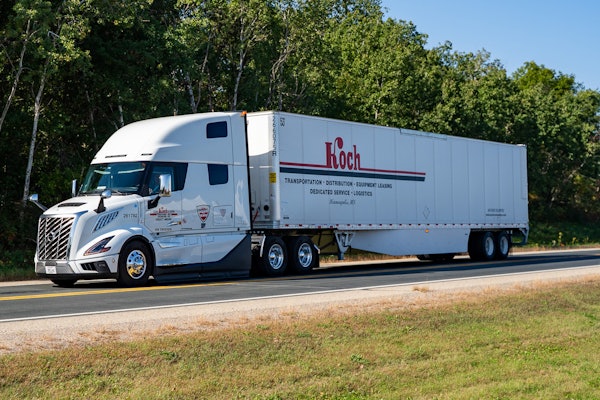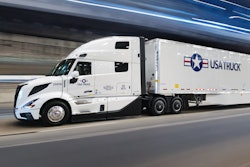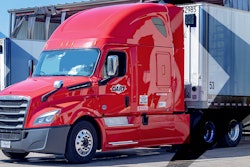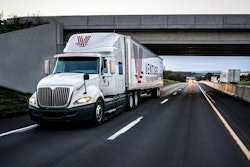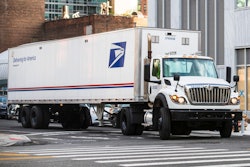PierPass has announced that beginning Dec. 1, marine container terminals at the Ports of Los Angeles and Long Beach will require trucks to be equipped with TruckTags in order to gain access to the terminals. The TruckTag program is a proactive effort by marine terminal operators in Los Angeles and Long Beach to meet U.S. Department of Homeland Security and U.S. Coast Guard guidelines requiring marine terminals to enhance their security measures.
Trucks without TruckTags will be processed through exception handling, which may include being denied access or processing via a trouble ticket. Trucking companies that already have received tags should install the tags on their trucks now and register the tag numbers in the eModal TruckerCheck program, which will activate the truck in the system.
TruckTag uses RFID (radio frequency identification) technology to meet heightened security requirements without hindering the efficient flow of cargo through the Los Angeles and Long Beach ports. The two adjacent ports together handle more than 40 percent of the nation’s total import traffic and 24 percent of its total exports. On average, there are more than 180,000 truck deliveries to and from the marine terminals every week.
Similar to E-ZPass and FasTrak automated systems, RFID tags installed on the truck’s driver-side rearview mirror are read automatically at marine terminal gate entrances using specialized scanning antennas that validate the security clearance of the truck. As part of the system, the truck driver’s commercial driver’s license is checked to verify they are authorized by their truck company to enter the port facility on their behalf.
Tag readers have been installed at most PierPass member terminals in the two ports, and member terminals are working to have all gates equipped with tag readers by December. “Implementing the TruckTag program enhances the security of Southern California’s marine terminals without hindering the flow of goods that keeps our economy running,” says Bruce Wargo, PierPass Inc. president and chief executive officer. “Marine terminals will continue doing their part to help make our ports and our people safe and secure.”
“We look forward to working with the TSA and Coast Guard to help improve port security,” says Anthony Otto, vice president of Long Beach Container Terminal. Traditionally, all marine terminal gate traffic is subject to a manual check-in process by marine terminal security guard personnel, often leading to less-than-optimal security measures and extended waiting times.
PierPass has distributed more than 16,000 tags to date and in the next few weeks will process requests for about 1,000 more. PierPass distributes the TruckTags through eModal, a database company that tracks trucking companies and drivers. To date, 70 percent of those tags have been registered and activated. The RFID TruckTags are produced by the WhereNet Corp.
Trucking companies are responsible for distributing the RFID tags to their registered truck drivers. An installation video is available for viewing at the eModal website at www.emodal.com/Help/Help.aspx?app=5. Currently, tags are free and may be obtained by logging onto to the website and selecting RFID Tags/More Information or /Request RFID Tag, then following the instructions. Tags are available only to trucks registered in eModal’s TruckerCheck program. More information about the TruckTag program is available at www.pierpass.org/trucktag.



